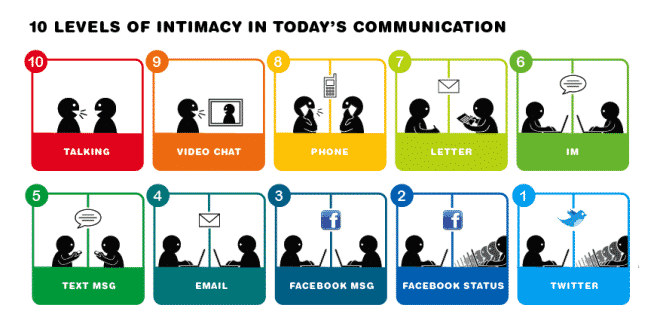Gelukkig zijn is meer dan de afwezigheid van ongeluk. Daar herinner ik mezelf regelmatig aan. Social media kunnen mensen dichter bij elkaar brengen. Maar maakt dat oppervlakkige contact wel echt gelukkig? Enkele jaren geleden maakte de VRT nog een reportage over a-social media. Onderstaande afbeelding sluit daar bij aan.
Vandaag lees ik een artikel van Arthur C. Brooks over Love People, Not Pleasure. Daarin omschrijft Brooks ditzelfde probleem.
Today, each of us can build a personal little fan base, thanks to Facebook, YouTube, Twitter and the like. We can broadcast the details of our lives to friends and strangers in an astonishingly efficient way. That’s good for staying in touch with friends, but it also puts a minor form of fame-seeking within each person’s reach. And several studies show that it can make us unhappy.
It makes sense. What do you post to Facebook? Pictures of yourself yelling at your kids, or having a hard time at work? No, you post smiling photos of a hiking trip with friends. You build a fake life — or at least an incomplete one — and share it. Furthermore, you consume almost exclusively the fake lives of your social media “friends.” Unless you are extraordinarily self-aware, how could it not make you feel worse to spend part of your time pretending to be happier than you are, and the other part of your time seeing how much happier others seem to be than you?
